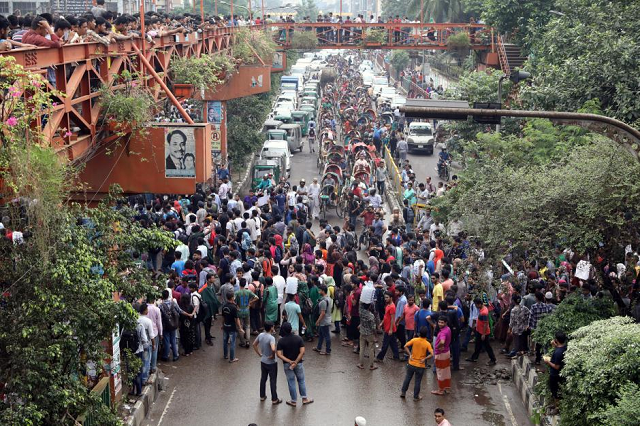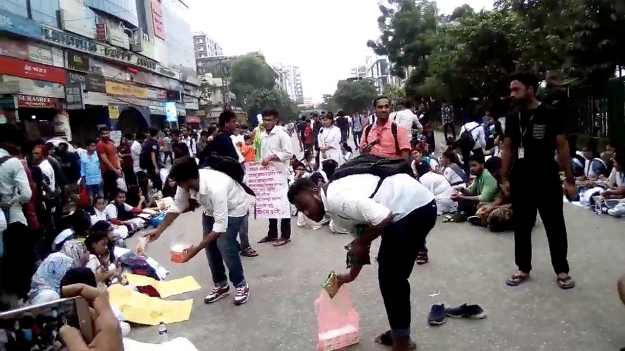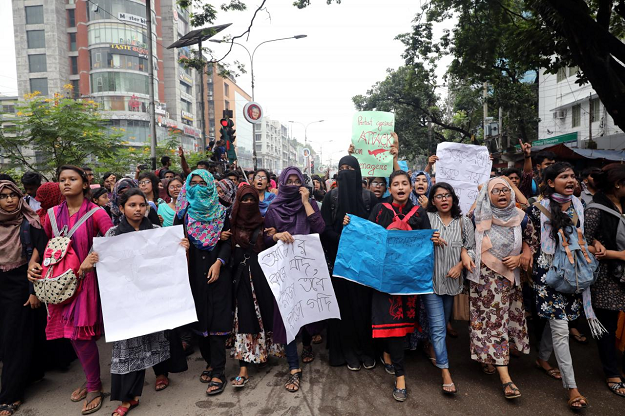Bangladesh considers capital punishment for driving deaths
Use of death penalty for road accidents is rare anywhere in the world

Bangladesh's transport authority listed punishments given in different countries that ranged from 14 years in the UK in extreme cases to two years in India.
PHOTO:REUTERS
Tens of thousands of angry school and colleges students have been demanding changes to Bangladesh’s transport laws, paralyzing the crowded capital of 18 million, after the two teenagers were killed when a privately operated bus ran over a group of students on July 29.
 People and students protest over recent traffic accidents that killed a boy and a girl, in Dhaka, Bangladesh. PHOTO:REUTERS
People and students protest over recent traffic accidents that killed a boy and a girl, in Dhaka, Bangladesh. PHOTO:REUTERS“In this amendment it has been proposed to award the highest level of punishment if it is killing by an accident,” said the law ministry official, who has been briefed on the matter but declined to be named ahead of a decision.
Bangladesh shuts down mobile internet to tackle teen protests
The current punishment is a maximum jail term of three years. Using the death penalty for road accidents is rare anywhere in the world.
Bangladesh's transport authority listed punishments given in different countries that ranged from 14 years in the UK in extreme cases to two years in India.
115 students injured in clashes as Bangladesh teen protests turn violent
Sheikh Shafi, a student of a polytechnic institute in Dhaka who lost his brother in a road accident in 2015, said one of the problems was that bus drivers are not paid fixed monthly salaries instead only earn commissions based on the number of passengers, forcing them to work long hours.
 Students shout slogan during a rally as they join in a protest over recent traffic accidents. PHOTO:REUTERS
Students shout slogan during a rally as they join in a protest over recent traffic accidents. PHOTO:REUTERS“Our demand is that the owners must appoint them and they will work a maximum of 10 hours. The commission based system must be eliminated,” said Shafi, who was injured while protesting on Saturday.
Top Bangladeshi photographer arrested for demo interview
Amid the ongoing protests, an official vehicle carrying the US ambassador to Bangladesh was attacked by a group of armed men on Sunday, some on motorcycles, the embassy said in a statement. There were no injuries but two vehicles were damaged.
The embassy has condemned the “brutal attacks and violence” against the students protesters by security forces, a charge the government denies.
Police said they did not have an immediate explanation as to why the US ambassador came under attack.



















COMMENTS
Comments are moderated and generally will be posted if they are on-topic and not abusive.
For more information, please see our Comments FAQ